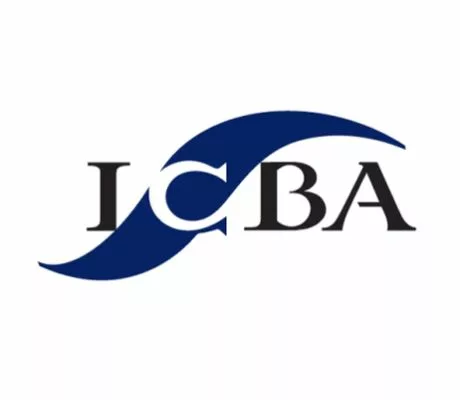EverBank has announced the leadership of its new community banking division. With the ten-year treasury yield reaching levels not seen in 15 years, regional banks are expressing concerns. In addition, credit unions are acquiring community banks at a rapid pace, prompting calls for Congress to investigate the tax exemption enjoyed by credit unions. Amidst this changing landscape, EverBank has appointed a new CEO for its community banking division, signaling its commitment to adapt and thrive in the evolving banking industry.

This image is property of www.bankingexchange.com.
Table of Contents
Appointments: EverBank Announces Leadership of New…
EverBank has recently made announcements regarding leadership changes within the organization. The banking institution has appointed a new CEO at New Peoples, marking an important development in its executive team. This move is expected to bring new perspectives and strategies that will help drive the bank’s growth and success in the future.
In addition to this change, there have also been executive changes at United Bank, Agility, NYCB, First Western, Bank of the Sierra, and Valley National Bank. These shifts in leadership reflect the dynamic nature of the banking industry and the need for organizations to adapt to changing market conditions and customer demands.
10-year Treasury yield Major Concern for Regional Banks
The recent rise in the 10-year Treasury yield has become a major concern for regional banks. The yield has reached 4.8%, a level that has not been seen in 15 years. This increase in yield can have significant implications for regional banks, as it affects their borrowing costs and interest rate spreads.
Regional banks heavily rely on borrowing to fund their lending activities, and an increase in the Treasury yield can lead to higher borrowing costs. This can ultimately impact their profitability and ability to generate returns for shareholders.
Furthermore, the rise in the 10-year Treasury yield can also impact the interest rate spreads for regional banks. As the yield increases, there is a higher chance that lending rates will also rise. This can make borrowing less attractive for customers and potentially slow down loan growth for regional banks.
Overall, the increase in the 10-year Treasury yield is a major concern for regional banks and highlights the need for careful monitoring of market conditions and interest rate movements.
PNC Buys Former Signature Bank Private Equity Loan Book
PNC has recently acquired the private equity loan book of the former Signature Bank. The bank has purchased $16.6 billion in loans from the FDIC almost seven months after Signature’s collapse. This acquisition is expected to strengthen PNC’s loan portfolio and expand its presence in the private equity lending market.
The acquisition of the loan book reflects PNC’s strategic focus on growing its lending activities and diversifying its loan portfolio. The bank recognizes the potential for growth and profitability in the private equity lending market and has taken steps to position itself as a key player in this space.
With this acquisition, PNC aims to leverage its expertise in private equity lending and provide innovative financial solutions to its customers. This move is in line with the bank’s commitment to meeting the evolving needs of its clients and driving long-term value for its shareholders.
Norcross Braca Group will Invest at Least $35 Million in Republic Bank
Republic Bank has recently announced that the Norcross Braca Group will invest at least $35 million in the bank. This investment comes after a difficult first quarter for Republic, and it is expected to support the bank’s efforts to overhaul its operations and improve its financial performance.
The investment from the Norcross Braca Group highlights the confidence that investors have in Republic Bank’s potential for growth and profitability. It also reflects the bank’s commitment to taking the necessary steps to address any challenges it may face and position itself for long-term success.
Republic Bank plans to utilize the investment to strengthen its balance sheet, enhance its technology infrastructure, and expand its product offerings. This strategic investment will help the bank attract new customers, deepen its relationships with existing clients, and improve its competitive position in the market.
Overall, the investment from the Norcross Braca Group is a positive development for Republic Bank and underscores the bank’s commitment to delivering value to its stakeholders.

This image is property of www.bankingexchange.com.
DFCU Financial to Acquire MidWestOne’s Florida Operations
DFCU Financial has recently announced its plans to acquire MidWestOne’s Florida operations in a deal valued at $12 million. This acquisition is the latest in a flurry of credit union-bank tie-ups that have occurred this month.
The acquisition of MidWestOne’s Florida operations aligns with DFCU Financial’s strategic objectives to expand its presence and customer base in key markets. It will allow the credit union to leverage MidWestOne’s existing infrastructure and customer relationships to drive growth and enhance its value proposition.
This deal reflects the ongoing trend of credit unions seeking to acquire banking assets as a means of expanding their capabilities and diversifying their revenue streams. It also highlights the increasing competition between credit unions and traditional banks in the financial services industry.
Overall, the acquisition of MidWestOne’s Florida operations presents a significant growth opportunity for DFCU Financial and further solidifies its position as a key player in the credit union sector.
Eastern Bankshares Merges with Cambridge Bancorp
Eastern Bankshares has recently announced its merger with Cambridge Bancorp. As part of this transaction, Eastern Bankshares will also sell its insurance arm to Arthur J. Gallagher & Co. This deal reflects Eastern Bankshares’ strategic focus on enhancing its core banking operations and divesting non-core assets.
The merger with Cambridge Bancorp will allow Eastern Bankshares to expand its footprint in key markets and strengthen its customer base. The combined entity will benefit from a broader geographic presence and a larger customer pool, which will support future growth and profitability.
Additionally, the sale of the insurance arm to Arthur J. Gallagher & Co. reflects Eastern Bankshares’ commitment to streamlining its operations and focusing on its core competencies. This strategic move will enable the bank to allocate its resources more efficiently and enhance its value proposition for customers.
Overall, the merger with Cambridge Bancorp and the divestiture of the insurance arm signal Eastern Bankshares’ commitment to driving long-term value for its shareholders and delivering exceptional service to its customers.

This image is property of www.bankingexchange.com.
ICBA: Congress Must Investigate Credit Union Tax Exemption
The Independent Community Bankers of America (ICBA) has recently issued a statement calling for Congress to investigate the tax exemption enjoyed by credit unions. This statement comes in response to announcements that credit unions will acquire five community banks this week.
The ICBA argues that the tax exemption gives credit unions an unfair advantage over community banks, as they are not required to pay federal income taxes. This exemption allows credit unions to allocate more resources to aggressive expansion strategies, which can result in market consolidation and the erosion of competition.
The ICBA believes that a thorough investigation by Congress is necessary to ensure a level playing field for community banks and credit unions. They argue that any changes to the tax exemption should be carefully considered and implemented to promote fairness and competition in the financial services industry.
This statement reflects an ongoing debate within the industry regarding the role and impact of credit unions on the broader banking sector. It highlights the need for regulatory oversight to ensure that all financial institutions operate under the same rules and regulations.
Credit Unions Snap Up Community Banks
In late August, there was a flurry of deals that saw credit unions acquiring community banks in North Carolina, Pennsylvania, Michigan, and Alabama. These mergers and acquisitions reflect the growing trend of credit unions expanding their capabilities and customer base through strategic acquisitions.
Credit unions are increasingly looking to acquire community banks as a means of driving growth, enhancing their product offerings, and diversifying their revenue streams. These deals allow credit unions to leverage the existing infrastructure and customer relationships of community banks to accelerate their expansion plans.
At the same time, these acquisitions can also benefit community banks by providing them with access to additional resources, technology, and expertise. This can strengthen their competitive position in the market and support their long-term growth objectives.
Overall, the influx of credit unions into the community banking space highlights the evolving landscape of the financial services industry. It underscores the need for community banks to adapt to changing market dynamics and explore strategic partnerships to drive growth and maintain their relevance in the market.
Canadian Banks Miss Estimates Thanks in Part to Interest Rate Hikes
Scotia Bank and the Bank of Montreal have both missed their quarterly profit targets due in part to interest rate hikes. The increase in interest rates has impacted the profitability of these banks, highlighting the challenges they face in a rising rate environment.
The interest rate hikes have resulted in higher borrowing costs for banks and reduced demand for loans from customers. This has put pressure on the net interest margins of banks, affecting their ability to generate profits.
Furthermore, higher interest rates can also impact the demand for other financial products and services offered by banks. This can lead to a slowdown in fee income and hinder the overall growth trajectory of the banks.
The missed profit targets by Scotia Bank and the Bank of Montreal underscore the importance of closely monitoring interest rate movements and their impact on the banking industry. It highlights the need for banks to have robust risk management strategies in place to navigate the challenges posed by changing interest rate environments.
10 Year Treasury Yields Hit High
The 10-year Treasury yields in the United States have reached a new high, reaching levels not seen in 15 years. The rise in Treasury yields is a notable indicator of the overall health of the economy and can have significant implications for various sectors, including the banking industry.
Higher Treasury yields can impact borrowing costs for banks and influence the interest rates they offer to their customers. This can affect the affordability of loans and impact the demand for credit.
Additionally, higher Treasury yields can also have an impact on the value of fixed-income assets held by banks. As yields increase, the value of existing fixed-income investments may decrease, potentially affecting the profitability and financial performance of banks.
Overall, the rise in 10-year Treasury yields is an important development to monitor as it can provide insights into the broader economic landscape and its implications for the banking industry. It highlights the need for banks to carefully manage their interest rate risk and adapt to changing market conditions.

